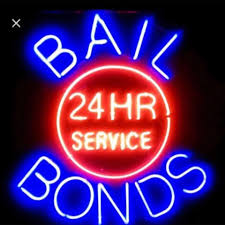
In Minnesota you can file bankruptcy on a bail bond. I have represented several people who have successfully filed on a bail bond, and it went away completely.
WHAT IS A BAIL BOND, WHO OWES IT?
A bail bond is kind of like a loan. If someone is charged with a crime and arrested, then the prosecutor or criminal justice system can choose to let the person out of jail if the person pays a large sum of money to the Minnesota Criminal Court. The Criminal Court will then return this large sum of money to the Defendant if that person shows up for their court date. This large sum of money that the Defendant pays to the Criminal Court is called the bail. If the defendant doesn’t come to the court date, then the Criminal Court keeps the bail money and issues a warrant for the defendant’s arrest.
It’s common that a Criminal Court date happens a long time after the Defendant (the person charged with the crime) is first put in jail. Most Defendants have a job and a family and other responsibilities and don’t want to wait in jail for weeks or months. Some people also don’t have enough money for the bail because it is often more than $10,000 and can be very high, even over $1 million dollars.
This is where a bail bond comes in. Bail bond companies will pay the bail to the court and treat it like a loan of the Defendant or the friends or family of the Defendant. If the Defendant doesn’t appear for court, then the bail bond company will start debt collection against the Defendant and also anyone else who cosigned or guaranteed the bail bond for the Defendant. If the Defendant does appear for court, then the court returns the money to the bail bond company, they keep a percentage as profit, and there is no debt.
If the Defendant doesn’t have income or assets, then it is common for the bail bond company to ask for a cosigner who says that the cosigner will pay in the event that the Defendant doesn’t come to court and doesn’t pay back the bail bond.
ARE THERE TIMES WHEN BANKRUPTCY WON’T WORK ON A BAIL BOND?
It doesn’t work as well if there is collateral for the bond. Sometimes when the bond is very high, the bail bond company will only pay the bond if they can take a lien against collateral. This is like a second mortgage against a house or piece of land, or sometimes like a car note in bankruptcy. Most bail bonds in Minnesota don’t require collateral.
Most of the time a lien against collateral will survive bankruptcy if the lienholder, in this case the bail bond company, did its paperwork correctly. Because it costs time and money and filing fees to do the paperwork correctly, it is not uncommon that the bail bond company did not successfully take a lien, even though the company may think that it did. If it failed to take a lien, then the bankruptcy trustee has a lien against the collateral instead. If this happens, the trustee will likely cut a deal with the debtor in bankruptcy for less than the full amount of the bail bond.
Another way that a bail bond can survive bankruptcy even if there is no collateral, is if the Defendant fraudulently took the bond in the first place. If the bail bond company thinks it can prove fraud, then it can object to the bond going away in bankruptcy. Note, the bond company only has about 3 months to do this, and if they do nothing, then the bond does go away even if it was fraudulently taken out in the first place.
To prove fraud, the bond company has to hire a lawyer and prove that the cosigner or defendant never planned to pay the money in the first place. This will be almost impossible to prove for a cosigner because the cosigner need only say that “I thought the Defendant was going to attend the court hearing.” It would be possible to prove against the Defendant if the bail bond company had a text message saying that the Defendant was planning not to go to the court hearing, and this text message was BEFORE the bail bond was issued.
Walker & Walker has helped many people move on from a bail bond, even after the bond company has gotten a judgment against them. We know that people will do anything to keep family out of jail, so they cosign or guarantee a bail bond. If this is your situation, you DO have a way out. Bankruptcy will make that debt or judgment go away with the stroke of a pen. Call today for a free consultation at 612-824-4357.

